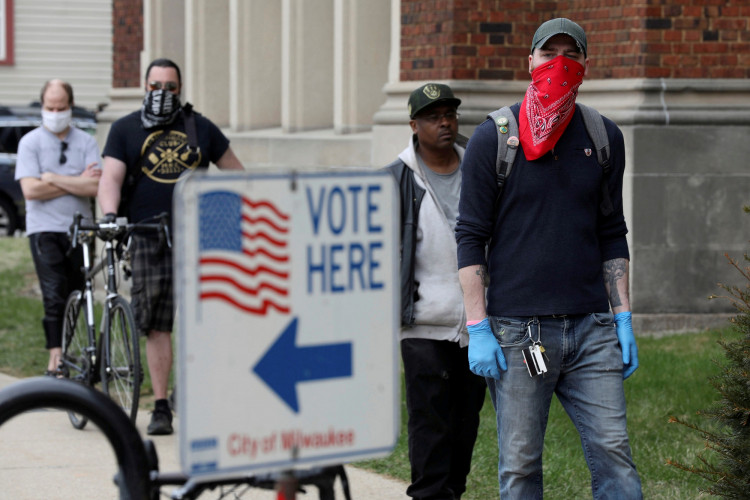The Georgia Supreme Court has dealt a significant blow to efforts by allies of Donald Trump to impose controversial election rules just as early voting for the 2024 presidential election begins in this critical battleground state. On Tuesday, the court unanimously rejected a Republican appeal to revive a set of election rules that included provisions for a hand-count of ballots and extended powers for county officials to investigate election results before certification. The court's decision effectively ensures that these rules, seen as a way to potentially disrupt the election process, will not be in place for the upcoming November election.
The rejected rules, passed by the state's Republican-controlled election board, would have required election officials in each of Georgia's more than 6,500 precincts to conduct hand counts of ballots in addition to the machine count. Voting rights groups had raised concerns that such a process could delay certification of the results, particularly in Georgia, where presidential elections are often decided by slim margins. The American Civil Liberties Union, which intervened to block the rules, praised the court's decision, stating that the election board's proposals could have injected "chaos and confusion" into the state's voting process.
Fulton County Superior Court Judge Thomas Cox had earlier struck down the proposed rules, finding that the board had overstepped its legal authority. In his ruling, Judge Cox stated, "The rules at issue exceed or are in conflict with specific provisions of the Election Code. Thus, the challenged rules are unlawful and void." His decision set the stage for the Republicans' failed attempt to have the rules reinstated before early voting began in Georgia.
Despite this setback, Georgia Republican Party Chairman Josh McKoon expressed frustration with the court's decision and pledged to continue challenging the ruling after the election. "It is supremely disappointing to observe yet another failure of our judicial system to expeditiously resolve critical questions about our elections process," McKoon said in a statement, indicating that the party would press its appeal next year.
The legal battle in Georgia is part of a broader pattern of lawsuits filed by Trump supporters across the United States, challenging election rules and procedures in the lead-up to the 2024 election. Trump has continued to make unfounded claims that his 2020 loss to Joe Biden in Georgia and other states was the result of widespread voter fraud, and his allies have sought to change election rules in several key states, often focusing on mechanisms like absentee ballots and the certification process.
Georgia, a state that holds 16 crucial electoral votes, is expected to be one of the key battlegrounds in the 2024 presidential election. Both Trump, the Republican nominee, and Democratic nominee Kamala Harris have placed significant focus on the state, which Trump lost in 2020 by just under 12,000 votes. In recent weeks, early voter turnout in Georgia has surged, with state officials reporting that more than 25% of registered voters have already cast their ballots ahead of the November 5 election.
Voting rights advocates and Democrats have argued that the now-blocked rules could have allowed county election board members to delay certification of results, particularly in precincts where discrepancies between voter numbers and ballot counts were reported. The blocked rules also included a controversial measure that would have allowed officials to investigate election documents before certifying results, a move critics said could lead to the undermining of the vote in closely contested races.
While the Georgia Supreme Court's ruling is a victory for voting rights groups and the Democratic Party, the case is far from over. The court's decision does not represent a final judgment on the legality of the rules but rather ensures that they will not be implemented for the 2024 election. The legal battle will continue in the coming months, with the Republicans vowing to revisit the issue in 2025.
In addition to Georgia, other battleground states have seen similar legal challenges as Republicans and Democrats prepare for what is expected to be a closely contested election. With Trump and Harris both campaigning heavily in states like Wisconsin, Pennsylvania, and Michigan, the outcome of the 2024 election could once again hinge on narrow margins in key states.






